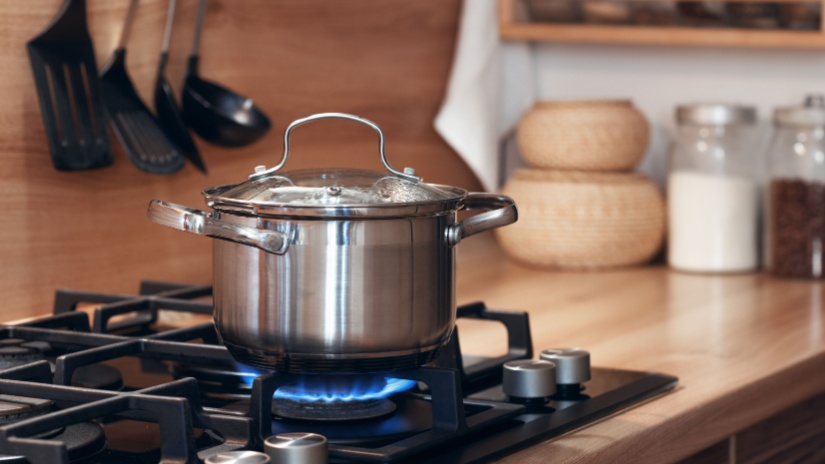Knowledge Centre
Is it time to switch off gas?

For decades, gas has been the go-to option for heating, hot water, and cooking in many Australian homes. It’s quick, reliable, and for a long time, it was the cheaper choice.
But things are changing.
With rising gas prices, growing support for electrification, and more Australians looking to cut bills (and emissions), many households are now asking:
"Should we switch off gas completely?"
Let’s break down the pros, cons, and comparisons for the three main uses of gas at home: heating, hot water, and cooking.
Heating: Gas vs electric
Gas heating
Pros:
- Warms up spaces quickly
- Good for large, open areas
- Often cheaper to run per hour (depending on your tariff)
Cons:
- Ducted gas systems can be expensive to install and maintain
- Gas prices are rising fast
- Poor energy efficiency compared to electric alternatives
Electric heating (reverse cycle air conditioners or heat pumps)
Pros:
- Highly energy-efficient - often 3–5x more efficient than gas
- Can cool in summer and heat in winter
- Lower emissions (especially with rooftop solar)
Cons:
- Can be expensive to install if you don’t already have a system
- Less effective in very cold climates (though new models are improving)
Winner: Electric.
In most Aussie homes, reverse-cycle systems are cheaper to run and more energy-efficient long-term.
Hot water: Gas vs electric
Gas hot water systems
Pros:
- Heats water quickly
- Can be more affordable upfront
- Works even during blackouts
Cons:
- Higher running costs as gas prices rise
- Not as efficient as modern electric systems
- Limited compatibility with solar PV
Electric heat pump water heaters
Pros:
- Extremely efficient - use ~70 - 80% less electricity than standard electric
- Can be powered by solar panels
- Government rebates available in many states
Cons:
- Higher upfront cost (but pays off over time)
- Needs ventilation space (usually installed outdoors)
Winner: Electric heat pump.
While upfront costs are higher, the ongoing savings are significant. These systems are often 3–4x more efficient than gas.
Cooking: Gas vs electric
Gas cooktops
Pros:
- Instant heat control
- Familiar for many cooks
- Works during a power outage
Cons:
- Indoor air pollution (emits nitrogen dioxide, a respiratory irritant)
- Gas leaks risk (even small ones)
- Harder to clean
Electric induction cooktops
Pros:
- Fast and precise heating
- Safer (only the pot gets hot, not the stove)
- Easy to clean
- No emissions or open flame
Cons:
- Requires compatible cookware (magnetic-based)
- Higher upfront cost
Winner: Induction
Induction is now just as fast (if not faster) than gas, and it’s safer and cleaner. Many chefs are making the switch.
Benefits of going all-electric
- Lower bills over time
- Fewer emissions - especially if you have solar
- Safer home - no gas leaks or indoor combustion
- More modern, efficient appliances
- Future-proof - some states are already banning gas in new builds
- Some state and federal rebates may help cover the cost of switching, especially for low-income households or homeowners upgrading to energy-efficient systems.
Downsides to consider
- Upfront costs can be higher (especially for heat pump systems or induction cooktops)
- May require switchboard upgrades
- If you’re renting, it might not be your decision to make - yet
Is now the right time?
That depends on:
- Your current energy bills
- The age of your gas appliances
- Whether you already have solar
- Government incentives available in your area
- Your long-term plans for the property
But one thing is clear: the future in Australia is electric - and making the switch early could save you more in the long run.
Want to know if going electric will save you money?
Call Compare Energy on 1300 790 106 for a quick, free comparison.
We’ll help you check:
- If you’re on the best electricity plan
- How much you could save by switching
- What to consider before turning off the gas

